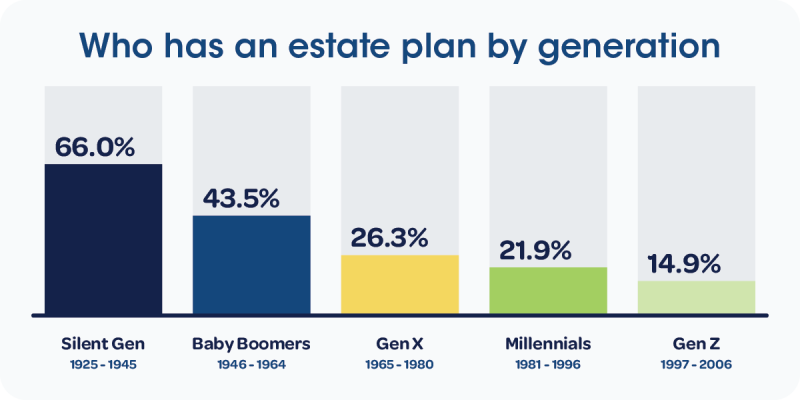Stop procrastinating and get to work on your estate plan

For many people, creating an estate plan falls into the category of important but not urgent. As a result, it can get postponed indefinitely. If you find yourself in this situation, understanding the reasons behind this procrastination can help you recognize and overcome the barriers that are preventing you from taking the first steps toward creating an estate plan.
Multiple reasons for procrastination
A primary reason people delay estate planning is emotional discomfort. Thinking about your death or a disability or becoming incapacitated is unpleasant. Simply put, it can be difficult to confront your mortality or make difficult decisions about who should inherit your assets or serve as guardian of your minor children.
According to the 2025 Trust & Will Estate Planning Report, only 31% of Americans surveyed have wills, just 11% have trusts, and 55% have no estate documents whatsoever.
Another reason for delay is that estate planning can seem daunting, especially when people assume it involves complicated legal jargon, multiple professionals, and a mountain of paperwork. For those with blended families, business interests, or complex financial situations, the process may feel even more overwhelming. Without clear guidance, many people don’t know where to start, so they don’t start at all.
There’s also the mistaken belief that estate planning is only necessary for the wealthy or elderly. Younger individuals or those with modest assets may think they don’t need a plan yet. Additionally, procrastination bias — the tendency to prioritize immediate concerns over future needs — often pushes estate planning to the bottom of the to-do list.
Reasons to motivate yourself
Not having an estate plan in place, especially the basics of a will and healthcare directives, can have dire tax consequences in the event of an unexpected death or incapacitation. Without a will, your assets will be divided according to state law, regardless of your wishes. This can cause family disputes and lead to legal actions. It can also result in tax liabilities that could have been easily avoided.
There are a few relatively simple documents that can comprise an estate plan. For example, a living will can spell out instructions for end-of-life decisions. A power of attorney can appoint someone to handle your affairs if you’re incapacitated. And a living trust can be used to transfer assets without going through probate.
The bottom line
Procrastinating on estate planning carries real risks — not just for you, but also for your loved ones. Without a proper plan, state laws will determine how your assets will be distributed, often in ways that may not align with your wishes. Contact us for help taking the first steps toward forming your estate plan.
Learning Center articles, guides, blogs, podcasts, and videos are for informational purposes only and are not an advertisement for a product or service. The accuracy and completeness is not guaranteed and does not constitute legal or tax advice. Please consult with your own tax, legal, and financial advisors.





